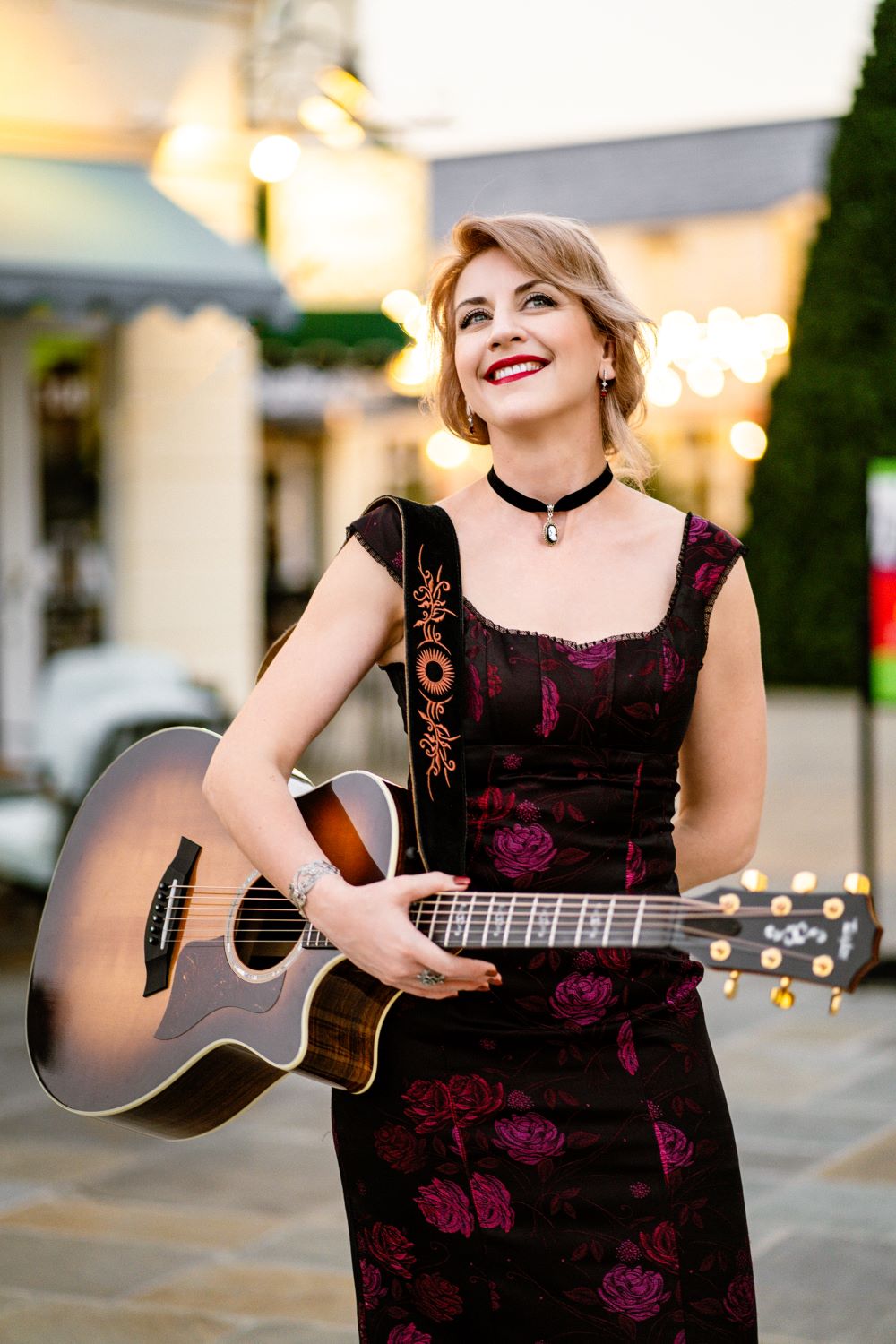Can you share your background and how you got started in the music industry?
I was born and raised in Academgorodok, a university town in Siberia, in a family of Soviet scientists. I started classical guitar at 13. Access to Western music was limited in the Soviet Union, but I listened to everything I could get my hands on – classical, Paco de Lucia and other Flamenco guitarists, The Beatles, ABBA, Queen, Pink Floyd, Russian singers/songwriters and underground rock, etc. At 18, wrote my first song.
What inspired you to pursue a music career?
Music has never been a primary career for me; I’ve held a day job since my teens. As a mother of two school-age children, I must work full-time to provide for them. But since my teens, I’ve known I had a songwriting talent and for 30 years, I have been writing songs and performing them in public whenever I had a chance. Lately, I have been focused on recording. I am not after many gigs. But I would love to leave a body of memorable, quality records before I am gone from this world.
How would you describe your musical style and the themes you explore in your music?
Old school, profound, quality songs with a touch of humor. My goal is to become known as an original jazz songwriter.
Can you tell us the story behind your single “The Children Will Pay”?
“The Children Will Pay” was written in 2022, at the height of school shutdowns and mask mandates for little kids. The song takes a hard look at what we have been doing to our kids – the aftermath of the Covid epidemic and learning loss, the burdens of unsustainable debt, and the many evils of the modern world that they will have to face.
What was the creative process like when producing and recording the single?
I was lucky to work with a brilliant Hammond organ player, Bertron Curtis, who gave the song its authentic Gospel sound. Recording the guitar track was a challenge – I tried several local jazz guitarists but none could come up with precisely what I was looking for, so I ended up playing the solo guitar myself, though I am by no means a professional jazz guitarist.
What message or emotions do you hope listeners take away from “The Children Will Pay”?
I hope the song reminds the listener of the emotional and physical struggles of our children during Covid and afterwards. The little kids always bear the brunt of human stupidity and cruelty. The simplicity of the tune and the traditional gospel arrangement were designed to highlight that powerful message.
Can you discuss any specific milestones or achievements that you are particularly proud of in your career?
As a jazz singer and songwriter, pursuing a musical career is challenging. I am an old-school girl when it comes to the quality of songwriting and performance. Despite working full-time, I was able to pursue a rigorous education as a jazz vocalist and release five studio singles – all my original songs. Lately I’ve been very much into Gypsy jazz and starting to practice guitar and write in this style.
What role do you believe music plays in society, and how do you see your contribution to it?
Truly catchy, original, profound songs are a rarity nowadays. There is no shortage of brilliant performers and songwriters, but a true gem, a memorable tune that pulls on your heart strings, is hard to come by. Perhaps, with a bit of luck and investment, I may yet break through the noise.
How do you handle criticism and feedback, both positive and negative?
I handle it swimmingly – bring it on!
How do you stay connected with your fan base, and what role do they play in your artistic journey?
I welcome them and appreciate them. I maintain and interact with my social followers as best I can. But if I don’t amass thousands of subscribers and millions of views, it’s not the end of the world.
Looking ahead, what do you envision for the future of your music career?
I hope to publish and promote a few high-impact jazz originals that will capture the listeners’ fancy and the attention of other prominent vocalists. It would be simply awesome if someone would cover a song of mine!




